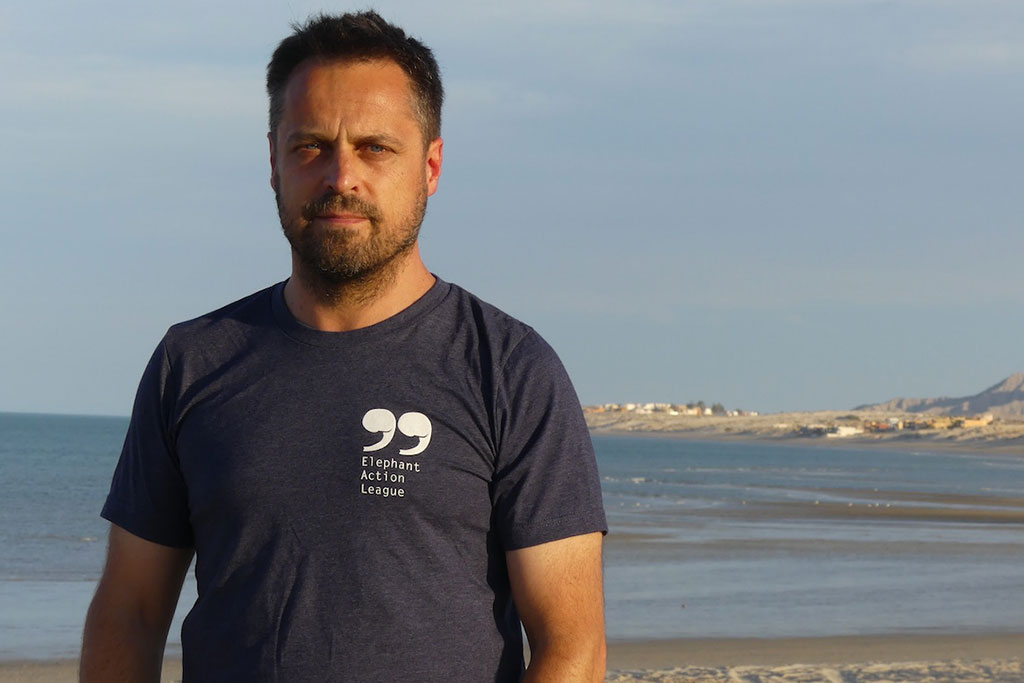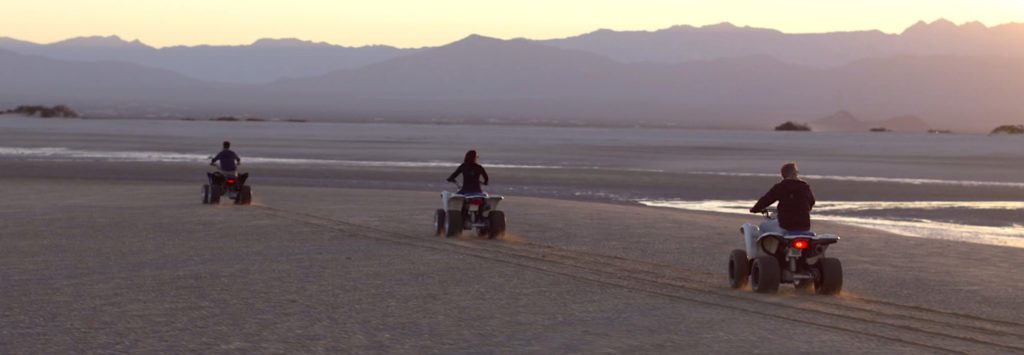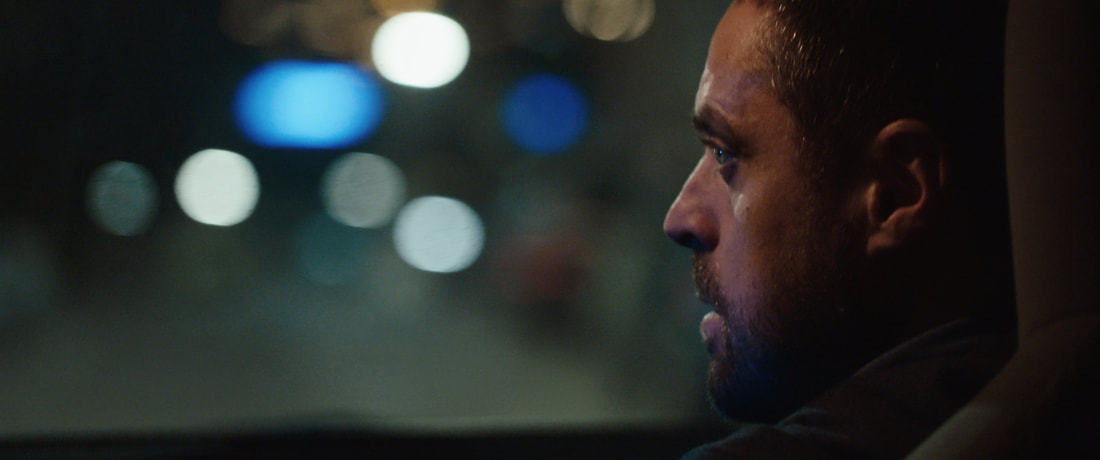|
Guest written by Robin McGahey, an Ocean Conservationist and enthusiastic volunteer at the 2019 Jackson Wild Summit. This year Jackson Wild was so proud to have been able to award Andrea Crosta as the 2019 Conservation Hero Award. He received the award for his work as Founder and Executive Director of Earth League International, a non-profit dedicated to using intelligence as a tool for conservation. Besides being the closest thing we have to an environmentally friendly Jason Bourne, Crosta is a dog lover, zoology major, businessman, intelligence officer, passionate conservationist, and more. I got the absolute pleasure of sitting down with Mr. Crosta and hearing about how he, and ELI, as he calls it, are changing conservation, one intelligence officer at a time. What’s your background? Andrea Crosta: I was born and raised in Italy, and grew up with a passion for wildlife protection. In school, I majored in Zoology and National Sciences, and was planning on developing a career in it, when my mother passed. After losing her at such a young age, I did what I had to do to support myself. I ended up diverting my attention to business, and got a master’s degree in business administration. In 1998, I launched one of the very first e-commerce companies in Italy, called ‘ThinkItaly’. Where did your background for intelligence come into play? AC: After founding ‘ThinkItaly,’ I got into intelligence and investigation high tech, applied to homeland security. Although I was in the private sector, we did a lot of work that the governments’ would then use. I worked a lot in the U.S., Europe, and Israel and our buyers, which were usually large government agencies. I was also the project manager for an anti-piracy sting off the coast of Somalia during the hay period. From that, I kept going. What started Earth League International (ELI)? AC: Seven years ago, I was in Kenya working as a security contractor for my very last client. I can’t tell you his name, but I can say he was a prominent politician in Somalia. I was looking at everything that was going on in Kenya, specifically with the increase in elephant poaching and I could see the gap between the rangers and the victims, these beautiful creatures. I would ask and they would say, “We are doing the best that we can, what else can we do?” So I decided to go back to my original passion, and decided to merge the conservation with security and high tech, and see what I get. That’s how ELI came into play, originally the Elephant Action League. This is not because we specifically specialized in elephants. It is because we liked what they symbolized: powerful, but not cocky. We decided to change it a few months ago because we kept getting asked if we only work with elephants. This name fits us much better. What exactly does ELI Do? AC: We use intelligence and apply it to conservation, through the collection and analysis of information 24/7. Imagine fighting terrorists from March to October... this is the same mindset that needs to go into conservation. If we really want to fight this, we need to know everything about everything and everyone involved. We have to map all of the players, honest and dishonest, making sure we know as much as we can possibly get our hands on. Everything counts. That’s the significance of our analysts back home. They are using several pieces of high tech software and diving deep into the dark web to weed out what, how, and where, and why. In addition to our projects overseas, we also created Wildleaks, which you may have heard of, which is an encrypted and safe program within ELI, that enables anyone to submit information to us, directly. How are you getting the information? AC: Mostly from people on the ground. “HumInt” as we call it. Human Intelligence is a classic; it is our assets on the ground that build a network of informants. Most of the time, these people don’t even know they are working with each other. We have people engaging with everyone from locals, police officers, and even the traffickers themselves, like you might have seen in The Ivory Game. What are some of the largest challenges you have faced? AC: Our strengths are in the field abroad. We have been really successful at building our network, gathering intel, and working with the locals. The biggest challenge has actually been at home, getting the support and funding. People find it hard to understand and connect with the idea of intelligence. It’s difficult, I understand. We aren’t the ones that have the pictures of the adorable baby elephants and definitely can’t invite them to join us on our expedition. They don’t understand that anti-poaching, without intelligence, is just buying time. The extinction times might extend, but without proper intelligence, extinction will still be present. Can you tell me a bit about the transition into media? AC: It’s interesting because they are such stark contrasts, as intelligence is incredibly secretive, and media is a public outlet. The partnership initially started with The Ivory Game. We were already working on an ivory trade project from Africa to Asia, when I got contacted by Richard Ladkani. He was looking for a story and we just got along really well. He originally didn’t know anything about ivory or the trade, but since has become an expert. Now, he is one of the very few people in the world that knows the names and faces of our covert agents in the films. He also understands the importance of privacy for our informants, and the length that we will take to protect them. That’s why when he asked about Sea of Shadows, it was a no brainer. Do you have any role models?
AC: The only one I can think of is Jane Goodall. She has become not just a mentor, but a dear friend and confidant for me. What’s next for you and ELI? AC: We have several projects and four documentaries in the works. In addition, we will be launching Wildleaks 2.0, and looking at doing a big push in Brazil right now in regards to the Amazon. We want to look behind the screen at the corruption that led to the fires. Our hope is to collect information on what is going on. Further down the road, we are hoping to train local law enforcement officers from around the world on how to identify, gather intelligence, and catch the traffickers on their own. Why do you what you do? AC: Conservation is the least innovative field I’ve ever come across. People have been doing and saying the same thing for forty years. Still, our wildlife and environments are dying. Technology doesn’t mean innovation. There are tools, yes, but true innovation comes within a complete change of mindset. Intelligence, like conservation, is a long-term war. We’re in it, and passionate about being there. Like any war, you have to know what, and who, you’re fighting. That’s where we come in.
0 Comments
Leave a Reply. |
Archives
March 2024
Categories
All
|
Contact UsJackson Wild
240 S. Glenwood, Suite 102 PO Box 3940 Jackson, WY 83001 307-200-3286 info@jacksonwild.org |




 RSS Feed
RSS Feed